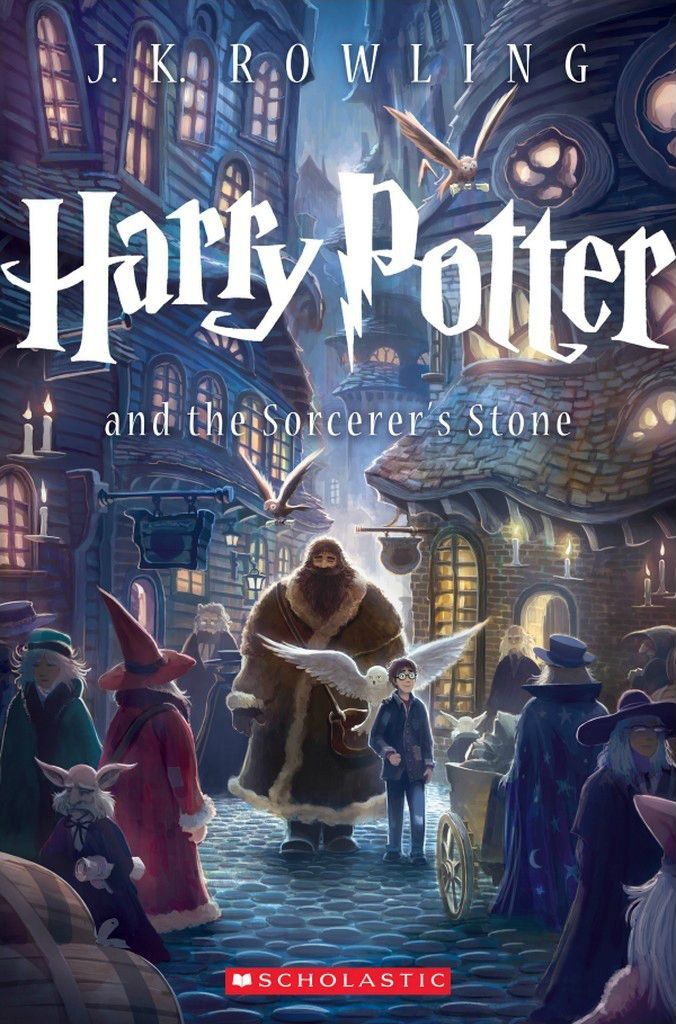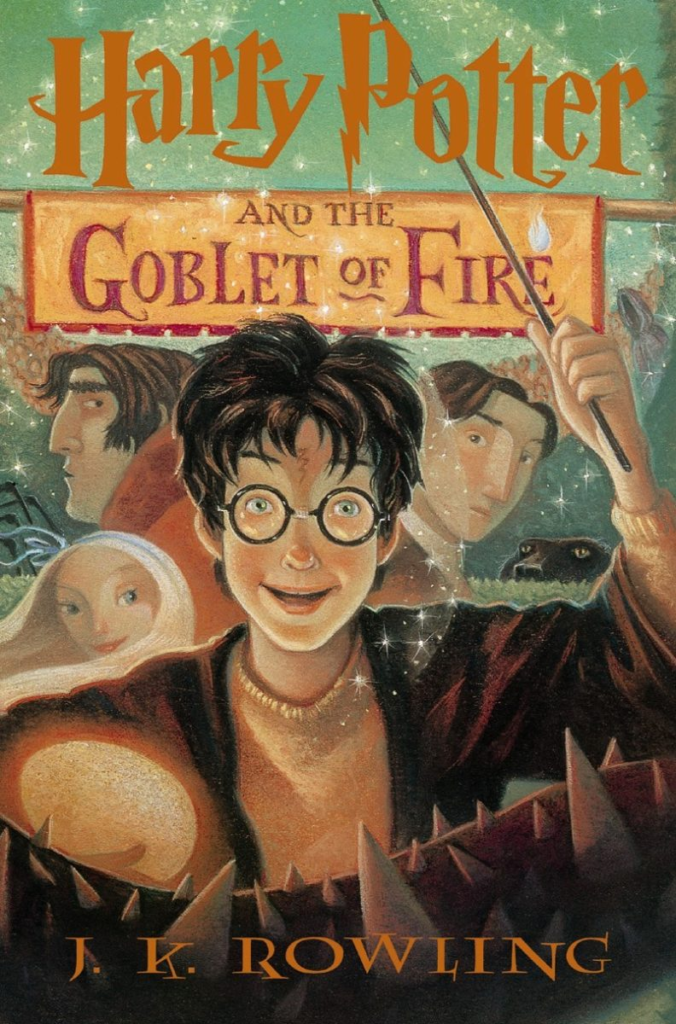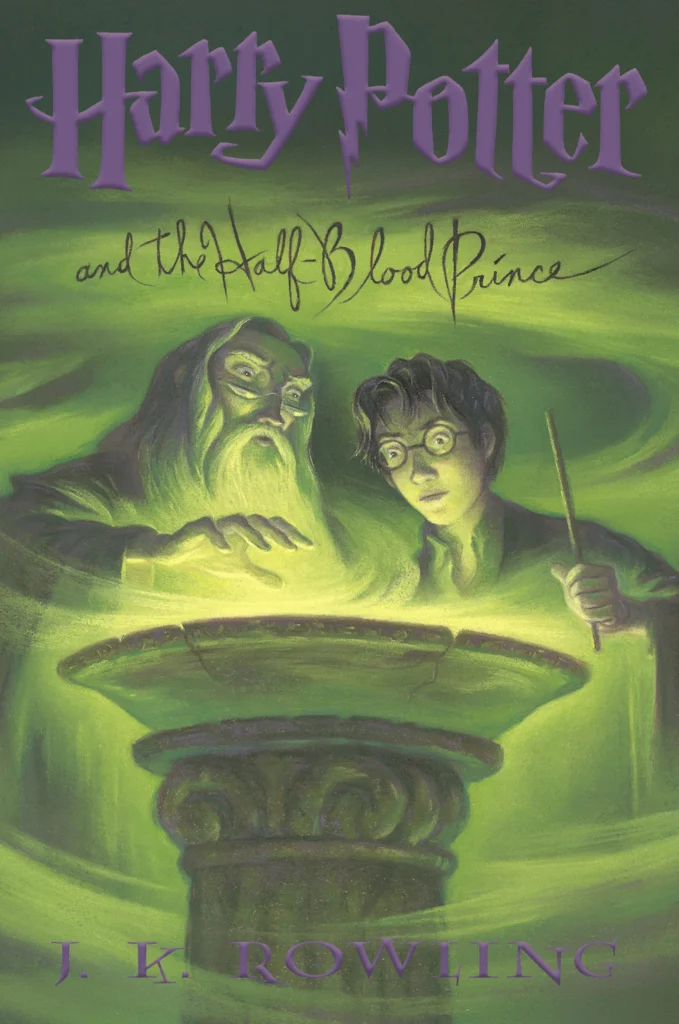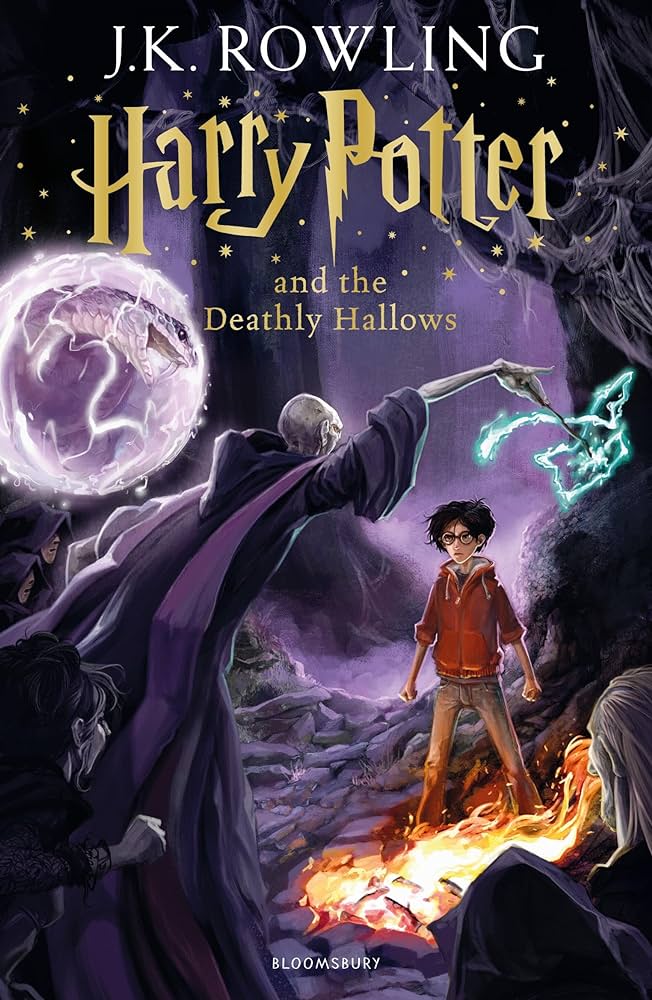The Harry Potter book series, written by J.K Rowling, is one of the most prominent and successful book franchises in history. Spanning seven books, the series chronicles the life of a young wizard, from his early years at the magical Hogwarts School of Witchcraft and Wizardry to his ultimate battle against the dark wizard. Set in a richly detailed magical world, the series blends fantasy, adventure, mystery, and coming-of-age themes, making it a timeless read for both children and adults.
The book series follow Harry’s journey as he discovers his magical abilities, forms deep friendships, and battles evil forces. From Harry Potter and the Philosopher’s Stone to Harry Potter and the Deathly Hallows, each book brings its own set of adventures, building upon the previous one, and creating a seamless narrative that captivates readers.
Cultural and Global Impact
Since its debut in 1997, the Harry Potter series has sold over 500 million copies worldwide, making it the best-selling book series of all time. It has been translated into more than 80 languages, capturing the imaginations of readers across the globe. The books gave birth to a global phenomenon that includes blockbuster films, theme parks, merchandise, fan conventions, and a dedicated fandom that continues to thrive.
Beyond entertainment, the series also had a profound influence on children’s literacy, encouraging a generation of young readers to pick up long-form books. The Harry Potter books have transcended the world of literature, leaving a lasting mark on popular culture, and becoming a gateway to the fantasy genre for many readers.
The Author’s Writing Style

J.K. Rowling’s writing style in the Harry Potter series is often praised for its accessibility and imagination. She creates a detailed, believable magical world while addressing universal themes like friendship, bravery, love, and the battle between good and evil. Her ability to balance whimsy with darker, more complex themes allows the series to grow alongside its readers. As Harry ages and faces more mature challenges, so too does the tone of the books, evolving from childlike wonder to more adult struggles.
Rowling’s use of descriptive language paints vivid pictures of Hogwarts, Diagon Alley, and the various magical creatures, spells, and characters that populate her world. Humor, suspense, and relatable characters keep readers engaged, while her intricate plotlines reward careful readers with layers of meaning and foreshadowing.
Book-by-Book Review of the Harry Potter Series
1. Harry Potter and the Philosopher’s Stone (or Sorcerer’s Stone)

Plot Overview
The first book introduces readers to the magical world through the eyes of an 11-year-old orphan, Harry Potter. Harry discovers on his birthday that he’s a wizard and is invited to attend Hogwarts. As Harry navigates his new life, he uncovers the secret of the Philosopher’s Stone, a powerful object that grants immortality. Alongside his new friends, Ron and Hermione, Harry faces challenges that test his courage, loyalty, and wit.
Key Themes
- The importance of friendship and loyalty
- Bravery in the face of danger
- The power of love and sacrifice
What Makes This Book Special
The introduction to the Wizarding World is one of the book’s biggest draws. Readers are invited into a universe filled with magic, wonder, and an intricately constructed world that is both familiar and fantastical.
2. Harry Potter and the Chamber of Secrets

Plot Overview
In his second year at Hogwarts, Harry encounters a new mystery involving a hidden chamber within the school. With students turning to stone and whispers of an ancient monster, Harry must once again rely on his friends to uncover the truth. Along the way, he learns about the darker side of the wizarding world, including the prejudices faced by Muggle-borns.
Key Themes
- The dangers of prejudice
- The value of loyalty and courage
- The importance of standing up against injustice
Review
This book builds on the magical world established in the first novel, introducing readers to darker elements like pure-blood superiority and the ominous legacy of Tom Riddle (Voldemort’s younger self). The sense of danger is heightened, making this a thrilling follow-up.
3. Harry Potter and the Prisoner of Azkaban

Plot Overview
Harry’s third year brings a new threat: Sirius Black, a notorious prisoner who has escaped from Azkaban. As Harry learns more about his parents’ past and the role Sirius played in it, he also grapples with the fear of betrayal. The introduction of the Dementors—creatures that feed on despair—adds a chilling atmosphere to this book.
Key Themes
- Family and identity
- Fear and courage
- The difference between appearance and reality
What Stands Out
This book shifts into a more mature tone, with themes of fear, freedom, and forgiveness taking center stage. Time travel plays a pivotal role, adding an intriguing twist to the plot.
4. Harry Potter and the Goblet of Fire

Plot Overview
The fourth book marks a turning point in the series, as Harry is thrust into the dangerous Triwizard Tournament, a magical competition between three wizarding schools. With death, betrayal, and Voldemort’s resurrection looming, this book sets the stage for the darker tone of the later novels.
Key Themes
- Teamwork and loyalty
- Facing death and danger
- The consequences of choices
What Sets It Apart
This is the first book where the scope of the Wizarding World expands beyond Hogwarts, introducing readers to foreign schools and broader magical communities. The stakes are higher, and the return of Voldemort marks a significant shift in the narrative.
5. Harry Potter and the Order of the Phoenix

Plot Overview
Harry’s fifth year is his most challenging yet. The Ministry of Magic refuses to acknowledge Voldemort’s return, leading to political upheaval within the wizarding world. Harry forms “Dumbledore’s Army” to fight back against oppressive forces at Hogwarts while grappling with personal loss and trauma.
Key Themes
- Rebellion against authority
- Coping with grief and trauma
- The importance of truth and justice
Highlights
This book introduces a more complex political dimension to the Wizarding World, with the Ministry of Magic actively working against Harry and Dumbledore. Harry’s emotional journey becomes more intense, reflecting the inner turmoil of adolescence.
6. Harry Potter and the Half-Blood Prince

Plot Overview
As Voldemort’s power grows, Harry delves into the dark secrets of the Dark Lord’s past. The revelation of Horcruxes—objects that contain fragments of Voldemort’s soul—adds a new layer to the battle between good and evil. Meanwhile, Harry deals with the challenges of growing up, including romance and loss.
Key Themes
- The nature of good and evil
- The importance of sacrifice
- Fate vs. free will
Standout Elements
The deep dive into Voldemort’s backstory adds a rich layer to the narrative, providing readers with a deeper understanding of the series’ antagonist. The emotional and tragic ending also sets the tone for the final book.
7. Harry Potter and the Deathly Hallows

Plot Overview
The final book in the series follows Harry, Ron, and Hermione as they leave Hogwarts to track down and destroy Voldemort’s Horcruxes. The climactic Battle of Hogwarts brings the series to an epic conclusion, with Harry facing Voldemort in a final showdown.
Key Themes
- Sacrifice and heroism
- The power of love and friendship
- The final battle between good and evil
Review of the Series Conclusion
The final book ties together all the loose ends of the series, delivering a satisfying and emotional conclusion. The Battle of Hogwarts is both action-packed and heart-wrenching, and the Epilogue provides a sense of closure for fans who followed Harry’s journey from the beginning.
Character Development in the Harry Potter Series
Harry Potter’s Journey: From Boy to Hero
Across the seven books, Harry Potter transforms from a naive young boy into a brave and selfless hero. His growth is a central focus of the series, as he learns about responsibility, friendship, love, and sacrifice. Harry’s character is relatable to readers because, despite his extraordinary abilities, he grapples with fear, self-doubt, and loss—universal human experiences.
The Golden Trio: Ron, Hermione, and Harry
The dynamic between Harry, Ron, and Hermione forms the emotional core of the series. Each member of the trio brings something unique: Harry’s bravery, Hermione’s intellect, and Ron’s loyalty. Together, they face every challenge, demonstrating the strength of friendship and the importance of teamwork.
Key Supporting Characters
Albus Dumbledore
Dumbledore plays a critical role in shaping Harry’s worldview. However, Dumbledore’s complex past and moral ambiguity add layers to his character, showing that even the greatest of leaders have flaws.
Severus Snape
Snape’s character is one of the most fascinating in the series, with his true loyalties and motivations remaining a mystery until the very end. His redemption arc is one of the most significant plot twists in the series.
Voldemort
As the main antagonist, Voldemort represents the embodiment of fear, hatred, and power-hungry evil. His obsession with immortality and control sets him on a collision course with Harry, who represents love, hope, and sacrifice.
Key Themes and Messages in the Harry Potter Series
The Power of Love
Love is the most important theme in the Harry Potter book series. It’s the force that protects Harry from Voldemort as a child, and it’s the reason why Harry can ultimately defeat the Dark Lord. Love is portrayed as the greatest source of strength, capable of overcoming even the darkest forces.
Friendship and Loyalty
The series places a heavy emphasis on the power of friendship and loyalty. Harry, Ron, and Hermione’s bond is central to their success. The loyalty of characters like Neville Longbottom and Dobby the house-elf also highlights the importance of standing by those you care about, even in the face of danger.
Bravery and Courage
Courage is a defining trait of many characters in the series, particularly those in Gryffindor House. Whether it’s standing up to bullies, facing one’s fears, or fighting against tyranny, the series shows that bravery comes in many forms.
Prejudice and Acceptance
Through the conflict between pure-blood wizards and Muggle-borns, the series explores themes of prejudice and acceptance. Characters like Hermione and Hagrid are often discriminated against for their backgrounds, but they consistently prove that a person’s worth is defined by their actions, not their heritage.
The Importance of Choice
Dumbledore’s famous quote, “It is our choices that show what we truly are, far more than our abilities,” encapsulates one of the series’ central themes. Harry’s choices, especially when faced with the temptation to use power for personal gain, demonstrate the importance of choosing the right path, even when it’s difficult.
The Cultural and Literary Legacy of the Harry Potter Series
Impact on Children’s Literature
The Harry Potter series revolutionized children’s literature by proving that young readers are eager to engage with complex, long-form narratives. The success of the books helped revitalize the fantasy genre and opened the door for other young adult series, such as The Hunger Games and Percy Jackson.
Global Phenomenon and Fandom Culture
The Harry Potter fandom is one of the most dedicated and enduring in the world. From fan fiction to fan conventions, the series has inspired a generation of readers to engage creatively with Rowling’s world. The books also paved the way for fan-driven movements in other franchises, like Star Wars and Marvel.
Adaptations and Spin-offs
The Harry Potter films, which closely follow the books, brought the magic of the Wizarding World to a new audience. While the films couldn’t capture every detail from the books, they remained faithful to the core story and characters. In addition, the Fantastic Beasts spin-off series and the stage play Harry Potter and the Cursed Child have expanded the Wizarding World further, introducing new stories and characters for fans to enjoy.
Conclusion
Timeless Themes and Relatable Characters
The Harry Potter book series continues to captivate readers of all ages because its themes are universal. The power of love, friendship, courage, and choice resonate with people from all walks of life. Harry’s journey from an ordinary boy to a hero shows that anyone can rise to the occasion, no matter their circumstances.
A Lasting Legacy
As new generations of readers discover the series, its legacy only grows stronger. With its rich world-building, memorable characters, and emotional depth, Harry Potter remains a touchstone in modern literature, inspiring future writers, readers, and creators alike.
Frequently Asked Questions (FAQs) About the Harry Potter Series
Is the Harry Potter series suitable for all ages?
Yes, the Harry Potter series appeals to readers of all ages. While the earlier books are more suitable for younger readers, the later books deal with darker, more complex themes, making them appropriate for older readers as well.
What are the key lessons from the Harry Potter books?
Some of the key lessons include the importance of love, friendship, bravery, and standing up for what is right, even in the face of overwhelming adversity.
How does the Harry Potter series compare to other fantasy series?
The Harry Potter book series is often compared to other classic fantasy series like The Lord of the Rings or The Chronicles of Narnia. However, it stands out due to its focus on character development, its accessible writing style, and its blend of magic with real-world themes.
